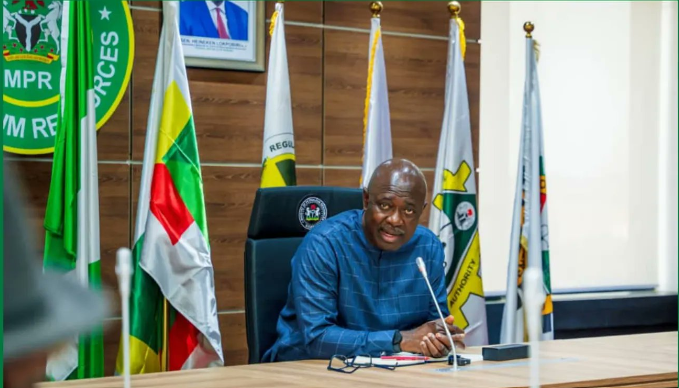
The Federal Government has said recent divestments by International Oil Companies have added about 200,000 barrels per day to Nigeria’s crude production, boosting efforts to stabilise the sector.
Minister of State for Petroleum Resources (Oil), Senator Heineken Lokpobiri, disclosed this in Cape Town, South Africa, while delivering a keynote address on behalf of President Bola Tinubu at the Africa Energy Week.
“These are not just transfers of assets, they are transfers of confidence, capability, and ownership,” the Minister said, noting that the divestments had already unlocked over $5.5bn in fresh investments within months.
Lokpobiri in a statement issued by his special assistant on Media and Communication, Nneamaka Okafor, on Thursday, stressed that the Tinubu administration was committed to building a transparent, stable and investor-friendly petroleum sector to attract long-term capital.
Over the past three years, major IOCs such as Shell, ExxonMobil and Chevron have been offloading their onshore and shallow-water assets as part of a global strategy to focus on deepwater operations.
Their exits have paved the way for indigenous firms like Seplat Energy, Oando, and Heirs Holdings to acquire significant stakes, boosting local participation and expanding Nigeria’s production base.
The statement read, “Of particular note were the recent asset divestments by International Oil Companies, which the Minister said have unlocked over $5.5 billion in Final Investment Decisions within months.
“These are not just transfers of assets, they are transfers of confidence, capability, and ownership. The divestments have already added approximately 200,000 barrels per day to national production.”
The Minister declared that Nigeria is “open for business” and actively pursuing policies that prioritise investment, efficiency, and long-term growth in the oil sector.
“This gathering is more than a conference, it is a call to action,” he said, stressing that Nigeria is ready not just to participate in the global energy market, but to lead reform and growth on the African continent.
Lokpobiri further outlined the bold policy measures implemented under President Tinubu’s administration, particularly the Petroleum Industry Act, which provides a clear and predictable fiscal and regulatory environment for investors.
The PIA has laid the foundation for licensing transparency, host community engagement, strengthened regulatory oversight, and a fair contractual framework.
“What makes Nigeria now different is the legal, regulatory, financial, and structural transformation we are delivering,” the Minister said.
Nigeria’s upstream sector is showing signs of strong recovery.
SOURCE: PUNCH NEWS PAPER



